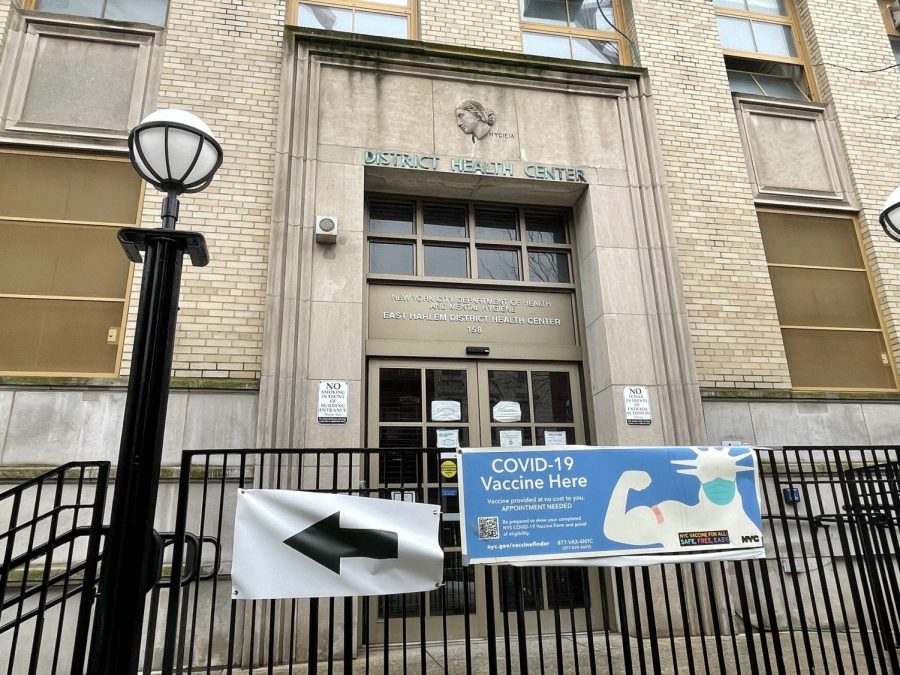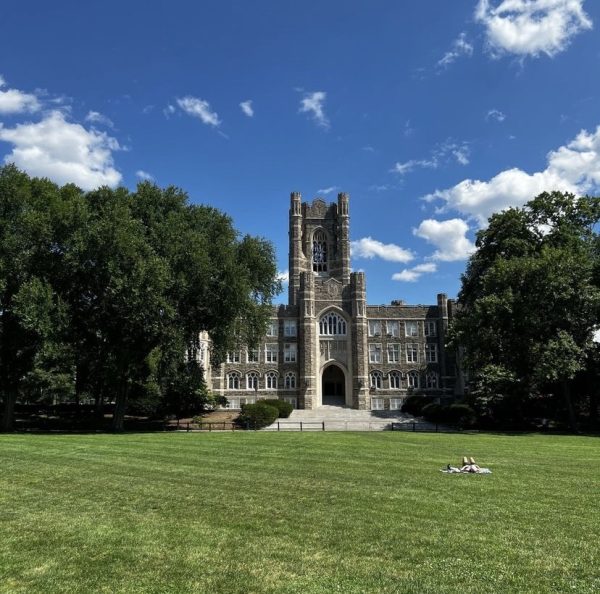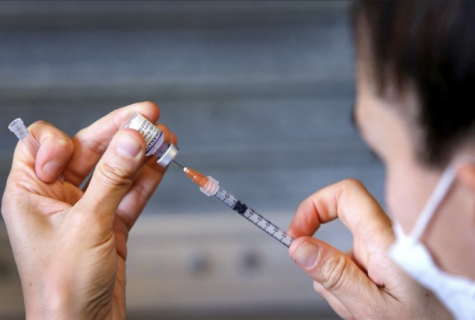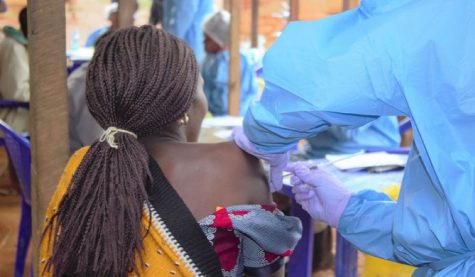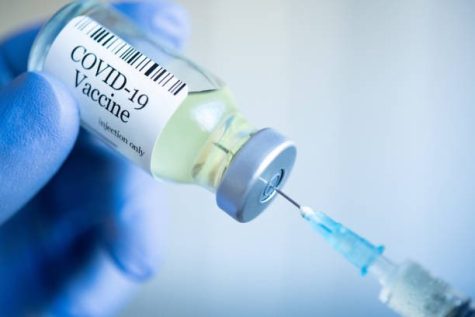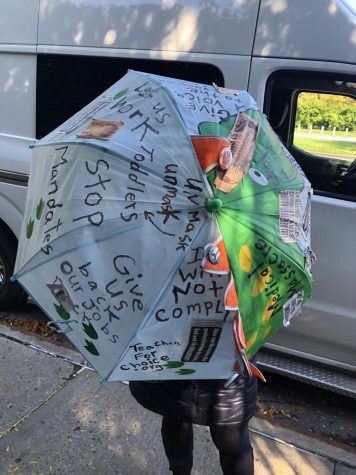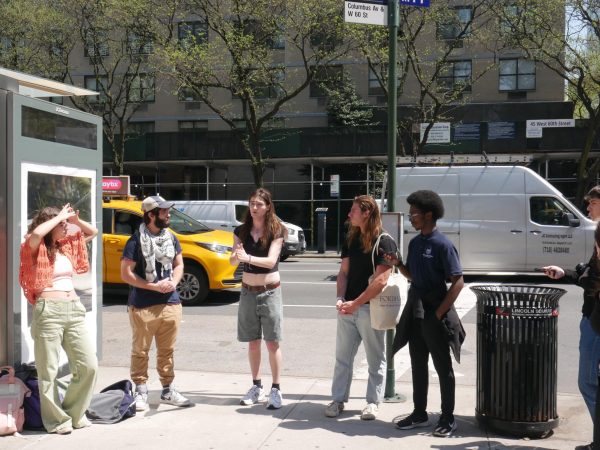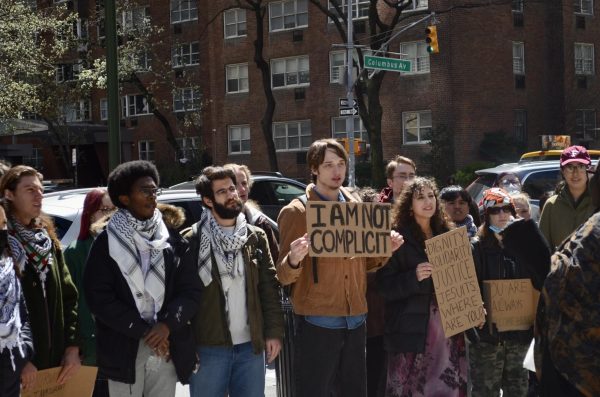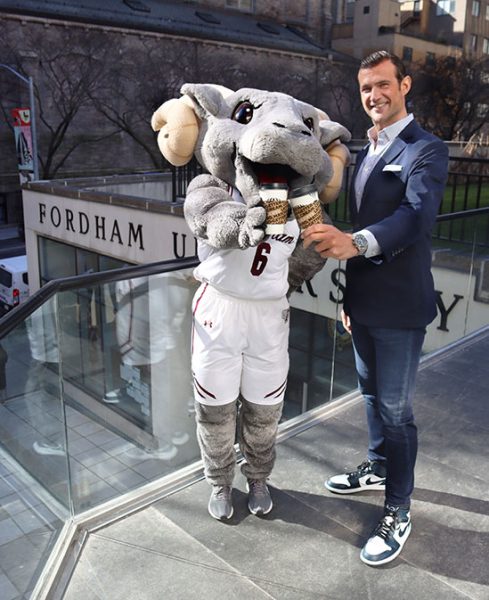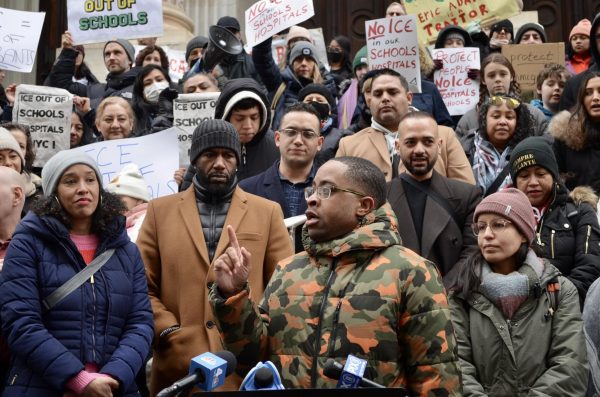New Yorkers Express Both Hope and Apprehension at COVID-19 Vaccination Site
As patience for COVID-19 restrictions wears thin after more than a year of the coronavirus pandemic, lines have gotten longer outside the East Harlem District Health Center. Flocks of people lined up to get vaccinated on Monday, March 29. Security was tight, but those waiting’s overall mood was one of anticipation and excitement as people conversed optimistically about their plans for the future.
“It just seems nice, the prospect of being able to go out and go to restaurants,” said Kyle Smith, 32, who has seldom left his Harlem apartment since the pandemic started. “To go out and do the things that I want to do without the fear of potentially getting this virus which can kill me.”
Although security grew annoyed at the disorder in the long line, many potential vaccine recipients, almost all of which were white, said they believed the COVID-19 vaccines will restore normality in New York City.
Doctors and nurses administering the vaccine at the health center were not allowed to comment. According to Katie Smith, 32, the chaos outside the building did not reflect her experience receiving the vaccine inside. “The experience was pretty smooth,” said Katie. “They have a good system in there, everyone’s distanced, there’s lots of helpful people to direct you where to go.” Smith had just received her second shot of the Moderna vaccine after getting her first dose two weeks before.
To first-timers like Columbia student Joyce, 19, the stakes couldn’t be higher. She said she anticipates returning to campus after many long months of remote learning. Joyce is a commuter student and saw the vaccine as an opportunity to escape the fear of traveling around the city she’s felt for over a year now. “I really wanted to get the vaccine because I always feel very fearful when I’m in the subway,” said Joyce. “So it’s nice to know I don’t have to be afraid anymore.”
Barbara, 82, agreed with Joyce and urged everyone waiting in line to get vaccinated before leaving the site. She was the oldest person to be vaccinated at the site.
However, it was clear misinformation has been injected into many Americans’ minds regarding the vaccine that might dissuade some from getting a shot. Caroline, 42, said she has a nephew who has autism who won’t be getting the vaccine because his parents believe being vaccinated is what caused his condition. Similarly, Francis, 30, was reluctant to be vaccinated because her mother told her the vaccine might cause infertility. Matthew, 40, who received both doses of the Moderna vaccine, said he experienced flu-like symptoms after his first shot and was wary the second shot may have a worse effect. His friend, he explained, suffered from a bad reaction from the second dose.
Studies have consistently shown there is no data to support vaccines as a cause for autism. Although vaccines contain residual human DNA, the amount of the DNA already present in vaccines would have to be substantially higher in order to pose any risk to humans, according to the National Center for Biotechnology Information. Infertility as a result of being vaccinated for COVID-19 is also a common COVID vaccine myth, which can easily be debased, according to health reporter Dr. Mallika Marshall. As for the second dose being where the vaccine really stings, although this is somewhat true, there is no difference between the second and the first doses.The side effects from the second shot is just an amplification of the body’s immune response to receiving the first vaccine, according to the L.A. Times.
Yet, these vaccine myths are just a drop in the bucket of misinformation about the process, with nearly 49%of Republican men expressing skepticism about the vaccine process and about 41%of young African-Americans also skeptical.
Marcus Mabry, 53, who has been a journalist for 30 years and serves as the vice president of global digital programming at CNN, says during all his time of covering the pandemic, he has been especially concerned about the disproportionate effect of the pandemic on communities of color. He urges these communities not to allow skepticism to impede the necessity of being vaccinated. “I definitely understand the history of medical malfeasance in communities of color in the United States. I totally understand the skepticism,” said Mabry. “But, this is one of those things where that skepticism will only harm us, ourselves. So we need to not let history get in the way of protecting ourselves and our communities and our families.”
Oliver, 24, received his second shot at the vaccine site and shared words of advice to the conservative men reluctant to receive the vaccine. “It would be great if prominent conservatives were talking about going to get vaccinated,” he said. “My understanding is that then-President Trump got vaccinated in January and didn’t make a public show of that. I think something like that could’ve been influential.”
Maureen, 42, expressed unequivocal trust in the science as she went to receive her second vaccine dose. “I trust the studies that have been done and the experience of the many, many dozens of millions of people who’ve come before me,” said Maureen. “I hope that people pay attention to the scientific studies, and not listen as much to a lot of the fear-mongering, and just think about how important it is for our collective protection.”
Maureen’s trust in science is not in vain, as CDC studies show an 80% efficacy in both the Pfizer and Moderna vaccines in their prevention of COVID-19, as reported by the New York Post.
As people line up every day for their shot at normalcy, cautious optimism stands right beside them. “I feel nervous-excitement,” says Megan, 23. “I think because there’s a light at the end of the tunnel — hopefully.”



































































































































































































